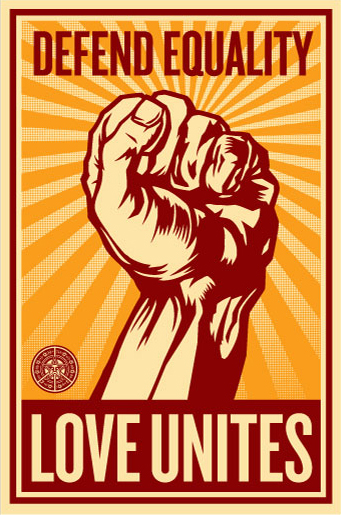Big Severance Packages Await Fannie, Freddie CEOs
Listen Now [54 sec] add to playlist
Morning Edition, September 9, 2008 · The government takeover of mortgage finance companies Fannie Mae and Freddie Mac has cost CEOs Daniel Mudd and Richard Syron their jobs. But Fannie Mae's Mudd could collect more than $9 million for leaving, while Syron could receive exit pay of more than $14 million.
Other Wall Street CEOs have received even larger packages when leaving firms battered by the housing slump. Still, the Fannie and Freddie packages are likely to draw fire from politicians and critics of high corporate pay.
Understanding The Fannie, Freddie Rescue
NPR.org, September 8, 2008 ·The U.S. government has stepped in with an ambitious plan to help rescue mortgage finance giants Fannie Mae and Freddie Mac.
The Bush administration placed the two companies into a conservatorship, replaced their CEOs and boards of directors, and announced a plan to infuse billions of dollars to prop them up as a means for reinvigorating the U.S. housing market.
Here, a look at some of the reasons the government decided to act and the implications for taxpayers.
Why did the government act now?
Treasury Secretary Henry Paulson told NPR that the primary reason for the rescue was the discovery of a "capital deficiency that needed to be addressed." In other words, they didn't have an adequate cushion against further losses in the deteriorating housing market.
Paulson said that investors have become "increasingly jittery here and around the world" and unwilling to provide added capital for Fannie and Freddie. He said the action was taken to ensure the continued availability of mortgages and to protect taxpayers. Currently, Fannie and Freddie are providing financing for more than two-thirds of all mortgages originated in the U.S.
What does this bailout plan involve?
The government is putting Fannie and Freddie into conservatorships under the control of their regulator, the Federal Housing Finance Agency. (Earlier this summer, Congress gave the administration the green light to take over the two companies if necessary.)
The four-step rescue plan, which also involves the Federal Reserve and the U.S. Treasury, calls for increasing Fannie and Freddie's portfolio of mortgage-backed securities through the end of 2009, then reducing them by 10 percent each year, starting in 2010. It would also establish a special class of shares owned by Treasury that would give preference to the government's investment over those owned by other shareholders. It would create a credit facility to lend up to $100 billion to each of the companies — as a means for encouraging continued investment in the companies. And it would begin a temporary program whereby the U.S. Treasury will invest in new mortgage-backed securities — $5 billion in the next month alone.
What's the goal of the government's takeover?
Paulson said the federal takeover was initiated to avert a "serious risk" to the financial system and keep money available for mortgages.
In the short term, the rescue is meant to help calm the markets and to offer some measure of stability to help the U.S. economy weather the housing correction. In the longer term, the goal is to keep the two companies afloat so that they can continue to support the U.S. housing market.
Fannie and the smaller Freddie own or guarantee more than $5 trillion in mortgages — almost half of all the mortgages issued in the United States. On Sunday, James Lockhart, the director of the Federal Housing Finance Agency, said the two companies' market share of new mortgages "reached over 80 percent" earlier this year, but is now falling.
Will Fannie and Freddie debt and mortgage-backed securities continue to be backed by a government guarantee?
Paulson said this is a key question that will need to be addressed in the next couple of years. Fannie and Freddie were chartered by Congress, and so historically, investors — especially foreign ones — have bought their debt because they believed it was backed by the full faith and credit of the United States, akin to Treasury bonds.
The takeover makes that guarantee explicit for the time being. Paulson said the issue of whether there should be a government guarantee would have to be resolved: "We're going to have to decide whether we want to have government support for private profit."
In recent weeks, Fannie and Freddie suffered a crisis of confidence as their stock price plummeted.
Are taxpayers at risk?
Paulson said the rescue effort was "structured very carefully to protect the taxpayers." If taxpayer dollars are used for the purchase of preferred stock, then "first losses will be borne by the existing shareholders," he said. But if the housing market continues to deteriorate, taxpayers could be on the hook. The Congressional Budget Office has estimated that a bailout of Fannie and Freddie could cost from $0 to $100 billion, with the most likely amount being $25 billion.
How might this affect homebuyers and mortgages?
The takeover buoyed investors, and mortgage rates began to drop in the financial markets after the takeover was announced. Economist Mark Zandi with Moody's Economy.com says that 30-year mortgage rates could descend to nearly 5.5 percent; the national average is now 6.35 percent.
How will consumers know whether the takeover action is working?
Paulson said the yardstick for consumers would be if there continues to be "an abundant supply of mortgage financing that is reasonably priced." In other words, if homebuyers are still able to obtain mortgages at good rates.
Will shareholders in Fannie and Freddie be wiped out or bailed out?
Paulson said in a prepared statement that because Fannie and Freddie are now in conservatorship, they will "no longer be managed with a strategy to maximize" shareholder returns — a strategy that he said "historically encouraged risk-taking." But he said if everything goes well, they might get some money back. But shareholders are last in line for any claims. So if things worsen, shareholders would likely get very little.
How could the takeover of Fannie and Freddie help stabilize the world financial system?
Many foreign central banks held Fannie and Freddie bonds in their portfolios. Some have reduced those holdings in recent months as questions about Fannie and Freddie's future have intensified. If Fannie and Freddie were not able to make good on their debt, there would be chaos in world financial markets.
With reporting by John Ydstie, Jim Zarroli, Adam Hochberg and Joshua Brockman and The Associated Press
Related NPR Stories
- Sep. 8, 2008Paulson: Mortgage Takeover Key For Economy
Related NPR Stories
- June 18, 2003Investors Seek Changes In Corporate Pay, Governance
- Sep. 8, 2008Fannie, Freddie CEOs To Leave With Millions
















No comments:
Post a Comment